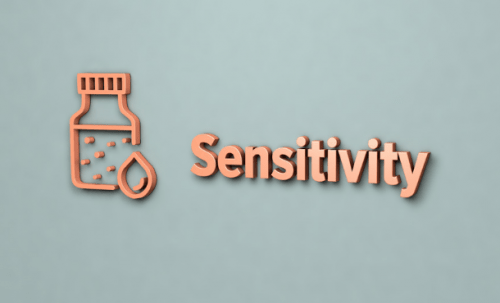Work stress comes in many forms but sensitive women react more than others. Colleagues may say to you “Don’t take work so seriously!”, or “You’re so sensitive!”.
Such comments can sound like a criticism of your very being. When people say this, or you say this to yourself, it can feel as if you shouldn’t have these feelings. Or that such feelings should be easy to change. Have you ever wondered whether you might be – or even considered that there’s a concept of – a Highly Sensitive Woman?
It’s useful to know this because if it is you, you can have more compassion for yourself. You can learn that you’re not alone and there’s nothing wrong with you. And you can find out how to change things for the better at work and home. If it’s others you work or live with who fit these experiences, or your children, you will understand them better.
What are Highly Sensitive Women
 Many women don’t recognise that they are Highly Sensitive Women or HSWs. The term “highly sensitive people” (HSP) has been around since the early 1990s. Elaine Aaron is well-known for her PhD on the topic. She developed a self-test questionnare that you can do (see the links at end of this blog). She affirms that high sensitivity is a trait in about 15-20% of people.
Many women don’t recognise that they are Highly Sensitive Women or HSWs. The term “highly sensitive people” (HSP) has been around since the early 1990s. Elaine Aaron is well-known for her PhD on the topic. She developed a self-test questionnare that you can do (see the links at end of this blog). She affirms that high sensitivity is a trait in about 15-20% of people.
A highly sensitive woman or a woman who experiences sensory-processing sensitivity (SPS) might not be aware that they experience life differently to others. They might think there’s something wrong with them because they react more intensely. Or, because they are criticised for being sensitive or as a child were told “Don’t be so shy”, they feel they are abnormal, that their emotions are wrong, or they feel not accepted for who they are.
Sensitivity is valued differently in different cultures. In cultures where it is not valued, highly sensitive women tend to have low self-esteem or feel they aren’t good enough.
(Just a note, that the following terms seem interchangeable: highly sensitive person/woman (HSP/HSW), highly sensitive personality, highly sensitive temperament, or highly responsive).
Key Signs of Being Sensitive
Noticing reactions is one way to tell if this is you, or someone you work with or live with. You or they seem more aware than others of subtleties, and more highly attuned to what’s going on around you or inside you. That’s because your brain and body process information and reflect on it more deeply. You’ll also be more easily overwhelmed and see, hear, smell and feel everything. This means you’re naturally overstimulated when things feel too intense, complex, chaotic, or novel for too long.
My personal experience is that I had realised for quite some time that I reacted differently to things than my husband. Often my reactions to the same thing were more intense, or sometimes I reacted and he hadn’t noticed anything! I did know for years that some people thought I was “too sensitive”, but I didn’t know why. I wasn’t called shy as a child but I know I didn’t like going to new places on my own when I was little. It was during a presentation at an EFT Tapping Retreat that I recognised myself as having some of the HSP traits when the key signs were listed. I have since then used tapping extensively to downregulate and re-wire my nervous system by offloading the stressful memories that were keeping my nervous system on higher alert.
Key signs include…
- You are easily overwhelmed by things like bright lights, strong smells, coarse fabrics, loud noises, mess
- You need to withdraw during busy days, into bed or a darkened room or some other place with privacy and relief from the situation
- You make it a high priority to arrange your life to avoid upsetting or overwhelming situations, or avoid the ‘bad’ news
- You get rattled when you have a lot to do in a short amount of time
- You notice or enjoy delicate or fine scents, tastes, sounds, beauty, or works of art
- As a child, your parents or teachers saw you as sensitive or shy
 Work Stress and Sensitive Women
Work Stress and Sensitive Women
At work your sensitivities may show up as you feeling more irritable, more easily tired, or more anxious than others. You might not always feel like this, but you might notice more when the stress levels rise, when deadlines are looming or there’s a big change. You may also feel that you’re never good enough or that you’re an imposter in your role. Burnout may also be more likely for you. You’re likely to feel “off” especially when you’ve been exposed too long to things like:
- “too much” talking or arguments at a meeting
- having to make too many decisions
- having too much on your to-do list
- being around lots of people eg in an open-plan office or large busy room
- seeing too many different people in one day
- flipping between too many different things in one day
- bright fluoro lights
- air that’s too hot or too cold
- busy crowds
- loud noises from a photocopier or other machinery
- too much screen glare if you’re on a computer, or window glare
In particular if you work with computer and/or mobile screens a lot, you may find your sensitivity makes you tired more easily than colleagues. Or if you have to work under fluorescent lights and can’t turn them off, you may get tired eyes, nausea, headaches or feel drained (see article link at end).
One energy expert says that the average person can be on screen for about 30-40mins before they’re negatively affected. But HSPs can feel the impact within minutes, and even more so when they’re stressed. When it comes to devices, if I have several days where I’m not on a computer or phone, when I come back to using them I notice how much more tired I get so much faster. You could experiment on yourself and see what you notice!
Why Am I Like This?
You may or may not be aware of where your sensitivity originated. Often it develops as a result of you being in an earlier situation or situations where you could not cope (perhaps as a child or a teen). Your nervous system reacted with a flight-fight-freeze response and has been on the look out for similar dangers ever since. So you often feel hypervigilant, or at least you do when the stress levels rise. But there is much power in knowing that your physiology is working fine to try and keep you safe from possible dangers, even if it’s going overboard in this role.
If you like metaphors, then highly sensitive women are like houses with a more sensitive fire alarm than other houses. The slightest whiff of smoke from slighly burned toast sets off the alarm, rather than going off only when the house is at risk of burning down. There’s nothing wrong with you. Your nervous and energy systems just need reprogramming or desensitising now that you’re in a different situation. The good news is that we can achieve this with EFT Tapping (more about that below!).
 Sarah’s Experience
Sarah’s Experience
Sarah came to me feeling stressed and overwhelmed at work as she had a high demand job with lots of clients. She also felt there was never enough money to go around and felt resentful that others received lots of overtime. One day when she received some overtime, the colleagues complained about her getting it. She felt that she was getting triggered all the time, which was affecting her physical and mental wellbeing.
The big issue was that she really wanted to dial down her emotional reactions and stress. She’d tried some self-care tapping but needed more help. So she organised some sessions with me. Over several weeks we worked on reducing her overtime-resentment feelings. This in turn brought up memories from her childhood. She’d been extremely resentful of her brother getting more of her mum’s attention while Sarah felt her mother essentially ignored her.
After a number of sessions where we worked on clearing the feelings of resentment and frustration she’d felt as a child, Sarah excitedly texted me:
Something has definitely shifted for me because I’ve been getting lots of overtime and not had those overwhelming feelings of resentment! It’s been a godsend not to feel resentful for the last few weeks as it was so draining, I can tell you! It just feels so freeing, like I can cope with what life throws at me without those feelings in every area of my life. I’m going to keep the tapping up and start working on other issues because it definitely helps.
Daily Strategies for Sensitive Women
There are a number of things you can do in both short and longer term to change your life.
In the short-term you could try:
- Adjusting your day: You may need longer to wake up than others, to “get going” before work. Or you may need a longer wind-down time before bed. You can experiment with how long before bed you need to stop watching TV (especially stimulating programs on a bigscreen TV) or skipping between things on your phone. You may find that you sleep better on days where you’ve done something quiet in the 3hrs before bedtime.
- A wind-down before bed: Do simple stretching or yoga before bed, maybe just 10-20mins to release pent-up body tension. This really helps some women to calm their mind. And/or do 20mins of self-care tapping to offload some of the day’s worries or concern about tomorrow.
- Finding quiet places: Maybe you notice you feel better when you spend quiet time by yourself. That might be outdoors or indoors. Perhaps you feel calmer in nature, but didn’t know why. Or you need to find a quiet café or library, or a quiet place in your home that’s just yours. For tips on making your home a more calming environment to be in, see the link at the end to “5 Organisation Tricks for Highly Sensitive People”.
- Noise-dimming earplugs: one client found the Calmer earplugs particular helpful to take the edge off noise-levels around her so she could sleep better. Others have used them in open-plan offices (see link at end).
- Support from like-minded women: search out online information and groups of others who experience the world as you do.
 In both the short and longer-term, EFT Tapping can really help sensitive women to re-balance and down-regulate their nervous system and energy. Many women find that EFT often works when nothing else has. Rue Hass wrote the book “EFT for the Sensitive Temperament”. She says “HSPs take everything in more deeply than most people do. They feel emotions more deeply and feel pain more intensely. They worry more. EFT is a special blessing” to HSPs because it can help you ease and heal your physical and emotional pain. It can also help you see and accept yourself with more kindness.
In both the short and longer-term, EFT Tapping can really help sensitive women to re-balance and down-regulate their nervous system and energy. Many women find that EFT often works when nothing else has. Rue Hass wrote the book “EFT for the Sensitive Temperament”. She says “HSPs take everything in more deeply than most people do. They feel emotions more deeply and feel pain more intensely. They worry more. EFT is a special blessing” to HSPs because it can help you ease and heal your physical and emotional pain. It can also help you see and accept yourself with more kindness.
High-sensitivity may be a lifelong experience for you, or something you’ve only developed more recently. While self-care tapping can help, EFT sessions or programs with a practitioner can go much deeper to rewire your neural pathways. Doing this will then reduce your overall sensitivity in daily life. EFT can also include identifying and clearing past traumas that may have left you with hypervigilance or general anxiety. Research also shows that EFT is effective in reducing and clearing PTSD and C-PTSD, including childhood traumas or difficult memories. You feel better already in the present day and start to notice you’re reacting less to other things too! And practitioners will also teach you easy self-care tapping so you can start to release tension yourself whenever you need any time, any place.
Ignoring the signs…
All HSWs must have plenty of downtime to avoid unwanted consequences, such as serious illness, adrenal fatigue, chronic fatigue, complete exhaustion or burnout, or ruining an important relationship. Of course that’s even more important if you’re in a field where safety could be affected, such as engineering, nursing, or a mum caring for youngsters. You may like to check my article on 28 Signs You’re Heading For Burnout or consider letting me help you with burnout recovery in a package of sessions.
Ideally some of your downtime will be right after work or a busy day. If you’re going to be with family or friends, have them understand that before you join them you need some quiet time. Perhaps you’ll lie down to relax, meditate with a tape, walk by yourself, or do a few rounds of tapping. If you have children, you could introduce them to quiet tapping or meditation. That way, you all have some quiet time together! And you’re also teaching them a good habit for life.
You may also need to limit your social life a little for a while, or be more choosy. You might experiment with how you feel by avoiding noisy or bright-light venues, especially if you have a big family or friendship group. Perhaps suggest you go somewhere that you know is more suited to your feelings and energy. Remember, even kind supportive people can add to your day’s stimulation load! You can also look at ways to ensure you take regular holidays or breaks to get a real rest. Your nervous system and mind need lots of good down-time to restore, rejuvenate and stay in balance.

There Are Upsides!
Living with the traits of high sensitivity may seem like a burden, and hard work to manage. But there are upsides! These traits make you very good around people and with people. They also make you very good in health and healing professions. You may be that one person who can walk into a room and “read the energy”. Or you may be really good at just intuitively knowing how others feel or what they need. Once you understand how to harness these traits, they can be seen as the real gift that they are! Aaron recommends the following:
- Believe your trait is real—review the research if you doubt it.
- Reframe your childhood in light of the trait.
- Heal from past wounds, since HSWs are differentially susceptible or more affected by both good and bad environments, in childhood or now [EFT can really help with this, including clearing the energy disruption and unresolved emotions from childhood difficulties, past traumas or emotionally unavailable parents, and the C-PTSD that such experiences may lead to]
- Don’t try to live like the other 80% of people!
- Be with a group of other HSWs to see how different we are. Try to have a few HS friends, if you have time in your life.
Once you recognise these traits in yourself, you can be more aware of your own energy, the energy of others, and how to handle life a little differently. Then you will regularly recover your energy and really start to heal and thrive!
Dr Lareen Newman PhD helps busy women who are struggling with work stress, study stress, life stress or burnout. She helps them to understand and offload their stress and anxiety, and re-energise so they can open to more joy in life! A good proportion of women who come to Lareen discover through the EFT tapping process that they are sensitive or highly-attuned. They may have thought for their whole life that there was something wrong with them. But the tapping starts to offload the layers and they excitedly have renewed hope as they start to open up to their higher self and their true potential.
Lareen can work with you online in private sessions, packages or programs via Zoom, or locally at her cosy and calming private studio in Adelaide, Australia. Lareen left a high-pressure salaried job to live her passion of seeing more women every week transformed so they are more free to share their gifts with the world! Check out Lareen’s homepage for more information or to sign up to her mailing list for notice of future articles, news and advance notice of special events.
RESOURCES:
Article: Sensitivity to Fluorescent Light and How To Deal With It
Article: 5 Organisation Tricks for Highly Sensitive People
Book: EFT for the Sensitive Temperament (by Rue Hass)
Earplugs: Calmer, by Flare Audio
Elaine Aron’s website Highly Sensitive Person includes self-test questionnaires, research on HSPs, information for parenting the HS Child, self-help books and more.
Parenting when you’re sensitive – Youtube discussion about Elaine’s book for parents (10mins)
Highly Sensitive Child Checklist
EFT for PTSD and CPTSD (UK charity PTSDUK)





